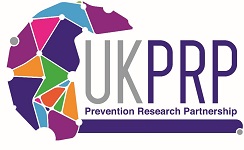Launch of the Safer Streets, Shared Voices report
Insights from public workshops on preventing VAWG in outdoor public spaces in Belfast
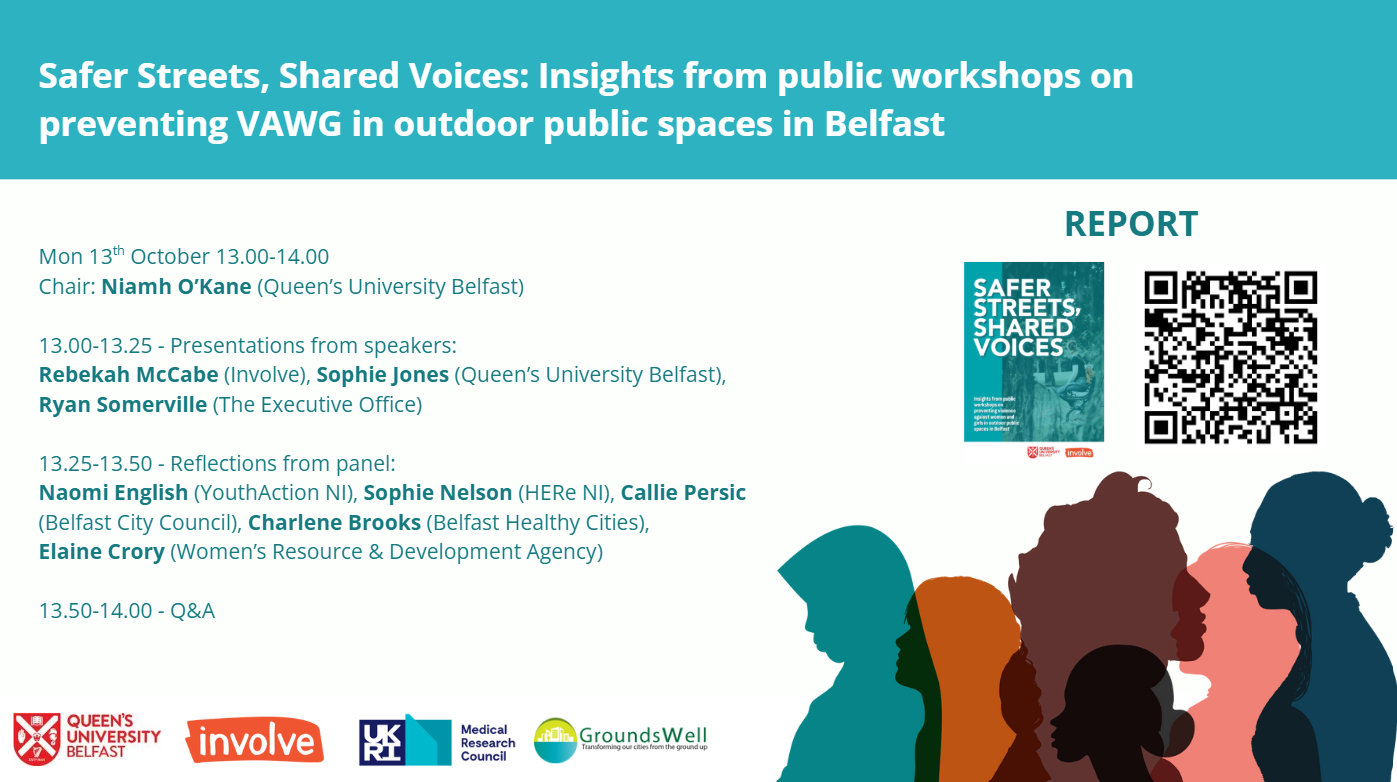
On Monday 13th October 2025, GroundsWell hosted a webinar to launch a new report Safer Streets, Shared Voices. 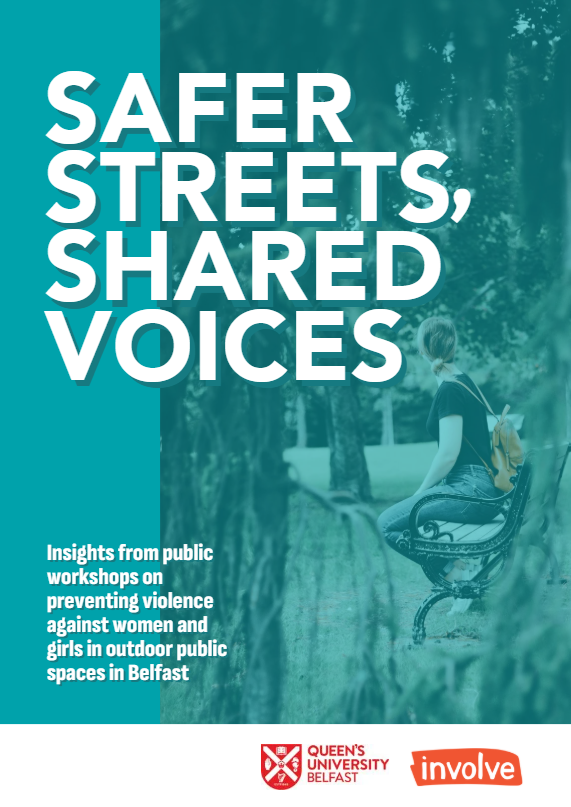
Read the report now
This report brings forward the perspectives of people from across Belfast, from a wide range of backgrounds, and provides recommendations for preventing Violence Against Women and Girls (VAWG) in outdoor public spaces.
The report is the second from the research team, the first being launched earlier this year, which presented findings from a series of participatory workshops involving cross-sectoral stakeholders in Belfast who co-developed a systems map to represent a shared vision of preventing VAWG in outdoor public spaces. You can access this report here.
Chaired by Niamh O’Kane, the webinar saw presentations from three speakers who presented and contextualised the report, and five panellists who reflected on the findings.
Speakers:
- Rebekah McCabe (Involve) presented an overview of the public deliberation workshops [slides]
- Sophie Jones (Queen’s University Belfast) presented an overview of the findings, recommendations, and next steps [slides]
- Ryan Somerville (The Executive Office) presented an overview of the EVAWG Strategic Framework and reflected how the report aligns with it [slides]
Panellists:
- Naomi English (YouthAction NI)
- Sophie Nelson (HERe NI)
- Callie Persic (Belfast City Council)
- Charlene Brooks (Belfast Healthy Cities)
- Elaine Crory (Women’s Resource and Development Agency)
Our panellists reflected on the findings, how they align with their work in the VAWG space, and how the report might be used going forward.
Also launched was an infographic to accompany the report, which provides a brief summary of the findings and recommendations:
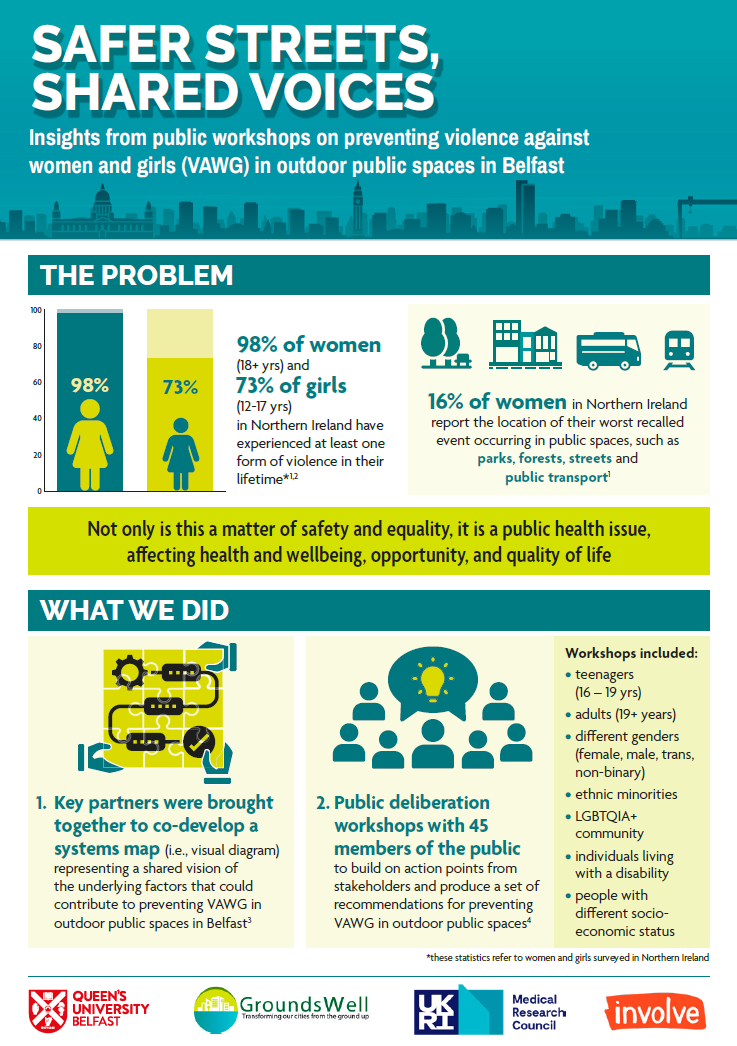
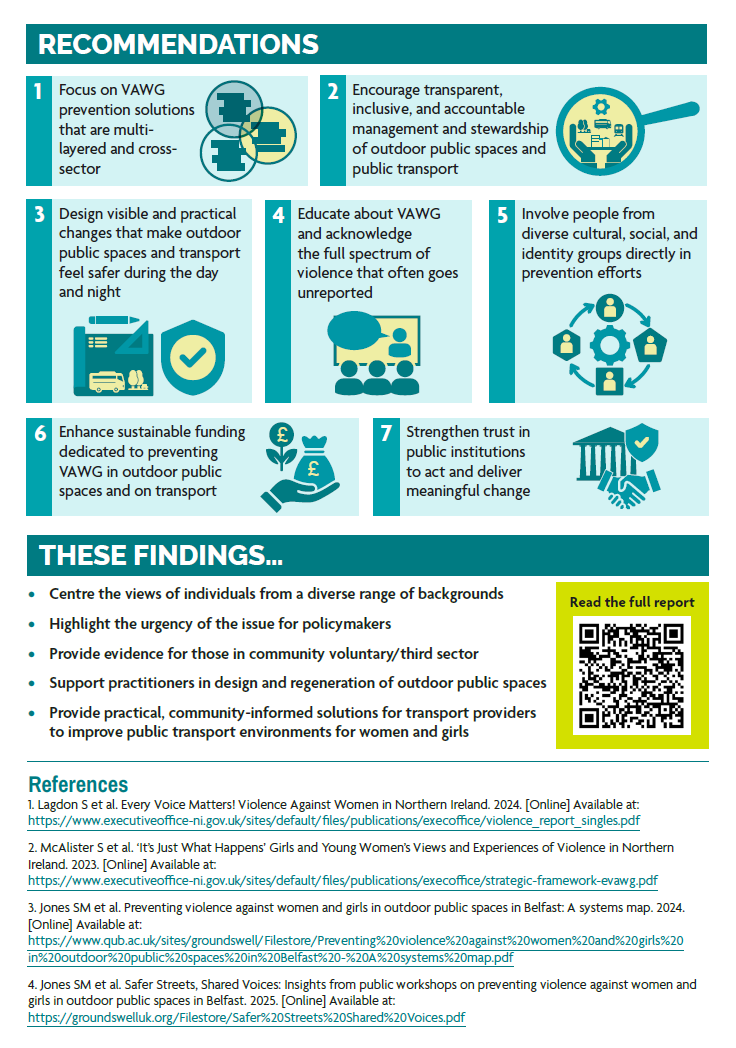
View full size
The research team would like to thank the speakers and panellists who spoke at the webinar and those who attended. The authors of the report would like to acknowledge all partners involved in this project including Involve, HERe NI, WRDA, YouthAction NI, and Rcity, The Executive Office, Belfast City Council, Belfast Healthy Cities and EastSide Partnership. We would also like to thank all participants who took time to contribute to the research.
This research was supported by the UK Medical Research Council’s Public Health Intervention Development scheme (PHIND) (UKRI158), the UK Prevention Research Partnership (MR/V049704/1), and Agility Funding from Queen’s University Belfast.

